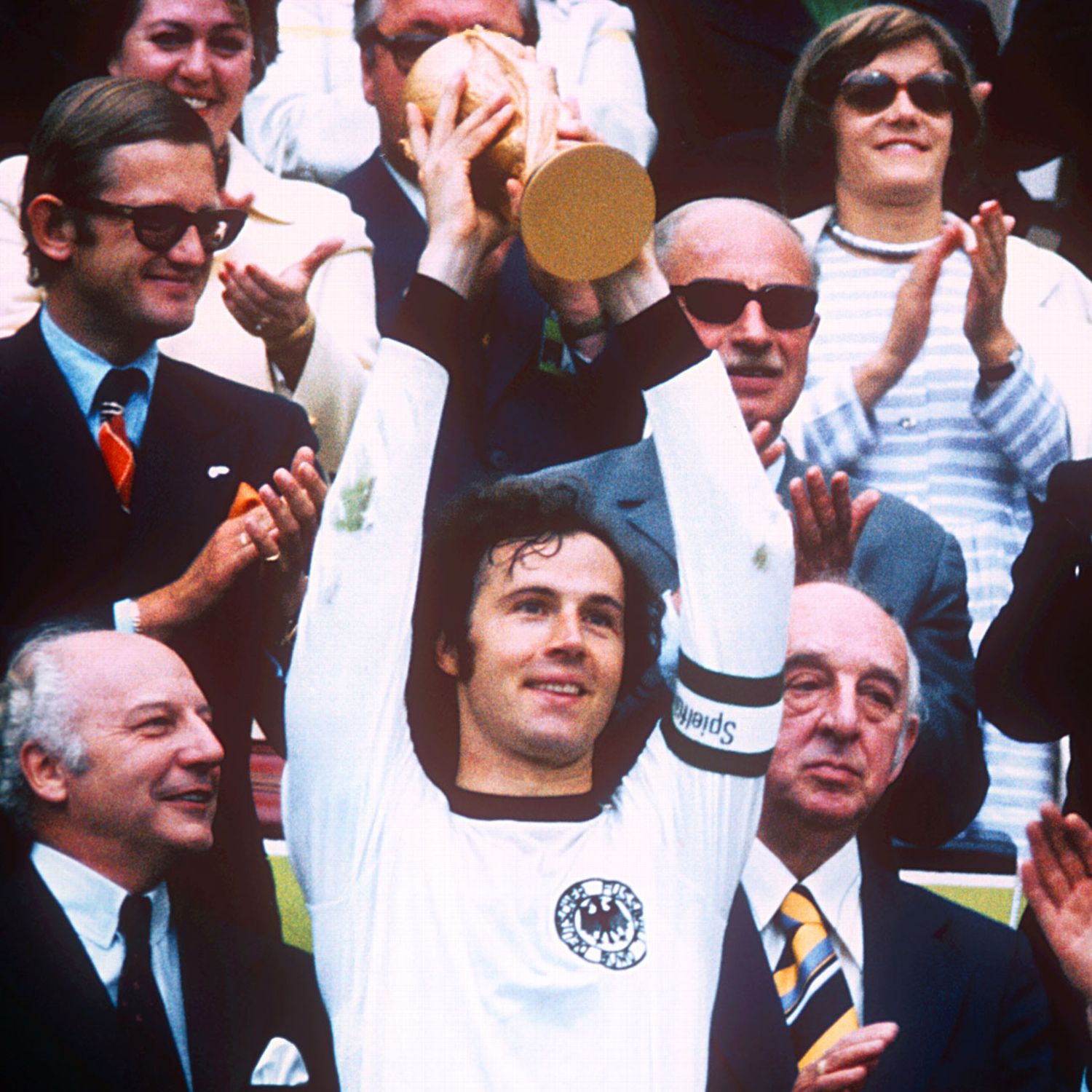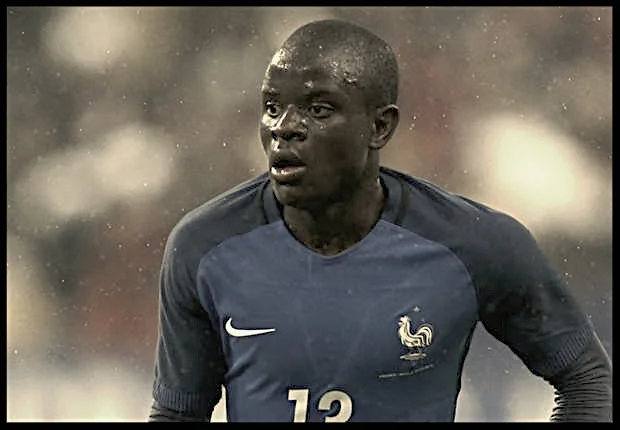Franz Beckenbauer - The 'Perfect' Center-Back
The elegant center-back, a position which had lost some of it’s romanticism for the more conventional, stay at home, powerful ball winner has once again evolved and taken on a new relevance. Over the past decade the position has gained traction as being integral to the initiation of progressing a team forward and bringing the entire scope of the field into play. Rather than being a feared ball-winner or a ball playing defender, today’s center back is required to be both astute in the tackle and progressive with the ball.
Current examples of players holding these proficiencies are Laurent Koscielny – the Frenchman has the innate ability to intercept a pass and score crucial goals; Matts Hummels – the German is immaculate on the ball and is often found meandering into the opposition half looking for the ball to be played into his feet; Leonardo Bonnucci – the Italian has a fantastic competence to play long, pinpoint passes for the quick transition from defence into attack; and John Stones – the young Englishman has the confidence and poise on the ball to lead the Guardiola revolution at Manchester City.
However, surpassing all of the wonderful talents listed above, the ultimate example of how to play the central defender role with aplomb is Franz Beckenbauer – Der Kaiser.









Beckenbauer was an elegant center-back who helped Bayern Munich achieve unprecedented domestic success and led West Germany to European Championship victory in 1972 and World Cup victory in 1974. He had the ability to pick up the ball at the back, see the entire pitch as if it were a game of Subbuteo and glided forward to either pick out a fantastic pass or create a scoring opportunity for himself.
Beckenbauer saw the pitch differently than other players, as if he was playing a chess match moving his pawns into the predetermined boxes enabling himself, the King, to move strategically forward into striking range. The key to being an opportunistic center-back is to understand the correct positioning of your teammates. For example, if one of your full-backs pushes forward, you guide the other to remain conservative or to instruct one central midfielder to hold their position while another roams forward. Understanding the basic concept of positional movements empowers you to astutely recognize where there is optimal space to move into, with or without the ball, thereby creating viable options for your teammates.
“Franz was a marvelous distributor of the ball, a great tackler, he always had control of a situation and he never panicked. (He was) extremely cool and never looked like (he was) at full stretch. Such a hard player to play against.”
Not lost on his positional awareness was Beckenbauer’s technical skill on the ball which enabled him to glide past opposition with ease, usually being very direct and not diverting his team’s forward movement into opposition territory. Complimenting his technique was the incredible pace at which he dribbled the ball and his long legs enabled him to elude defenders tackle attempts. Beckenbauer exuded confidence knowing that the combination of his attributes created a significant tactical and athletic advantage over his opponents. His team trusted him with the ball allowing him the freedom to morph into a rover-like player, deploying the total football philosophy of interchangeability.
Beckenbauer wasn’t just a defender who attacked - he also mastered the art of defending. He had the aptitude to time challenges as if he had read the attackers next move before it actually occurred. To master this ability you must study athletic movements; watch an attacker move their body and you can determine which direction they will maneuver. For example, when a player dips his shoulder left, he will move to your right and vice versa. Beckenbauer held this knack therefore even if the attacker was a step quicker physically, Der Kaiser used his football intelligence to either accurately time his movement to the ball before they reached it or, when absolutely necessary, slide to poke the ball away. He didn’t need to be a tough tackler as the capacity to read the game through his knowledge of football created a superior enough advantage to achieve objectives rather than having to risk injury in a forceful tackle.
The video below is the class personified by Der Kaiser:
Written in this post is a lot of information for a footballer to digest however, in summary a central defender should work to develop their understanding of all positions on the pitch. This will aid in establishing the know-how to direct their team efficiently, make the correct decisions with and without the ball and create space for their teammates to make and receive passes. This combined with confidence on the ball and vision to anticipate movement will render successful results when moving the ball from defence into attack. A center-back in football can be compared to a quarterback in American football as they are responsible for dictating the flow of the match through their general football understanding.
“Class personified. Calmness, pace and the ability to effortlessly move into midfield and attack. He had a picture of every player on the pitch. He inspired me as a kid, when I saw him play a pass with the inside or then the outside of his foot. The mark of a great player is the ability to be just as effective playing through different eras.”
I have played with two types of center-back. One which controls the game through his intelligence and awareness thereby offering composure and confidence on the ball. The other who has tunnel vision and doesn't look to their left and/or right but attempts to play repetitive long balls into the striker hence bypassing the defenders and midfielders on their team. The former is greatly preferred as they hold the nous to deploy a variety of tactics which creates an element of unpredictability to the other team. The latter introduces an opportunity for the opposition to anticipate correctly how you will play and they will inevitably drop deep and intercept most attempted long pass attempts. Furthermore, a major misconception is that when a defender repetitively plays a long ball accurately into the strikers feet it is considered efficient. Yes, they will hear the consistent compliment of 'well done, great ball' etc. however, the midfield has become exhausted from running up and down the pitch after being regularly by-passed, the full-backs have become disinterested because they haven't had a ball played to their feet and the striker who receives the ball is left isolated, having to beat the entire defence on their own. What I'm saying is that variety is imperative to success.
Footyscout has a philosophy on the development of the most astute footballer which is based on the physical, tactical and psychological components of a players composition – all held in equal accord. The x-factor to emerge as an elite player is to develop a firm understanding of football encompassing elements such as the history, evolution and current stature of the sport and its players. This will enable the capacity to tactically grow through the foundational principle of education. I believe that it is not necessarily the fastest and strongest that succeeds but rather the one with the highest level of football intelligence - that which Beckenbauer held in abundance.
“Beckenbauer was one of the best I ever saw play.”





